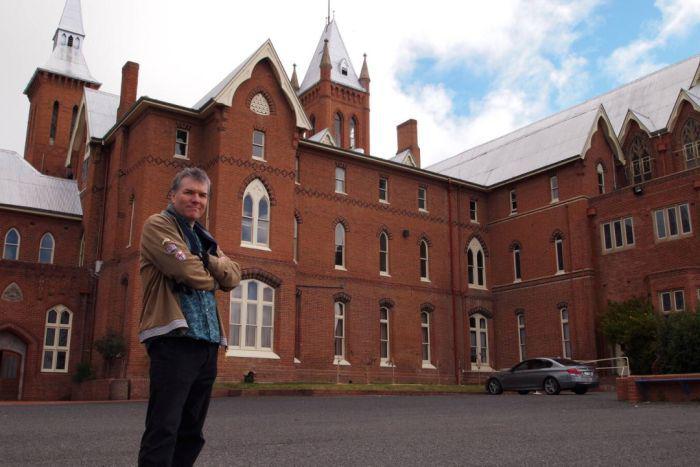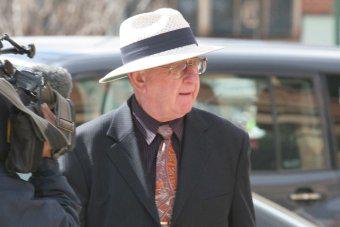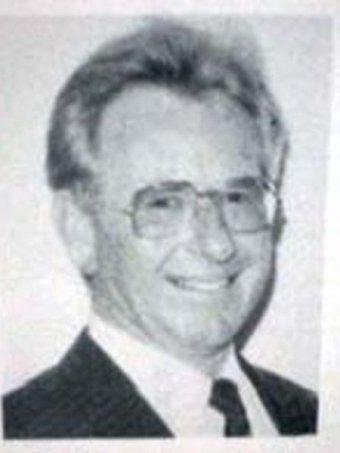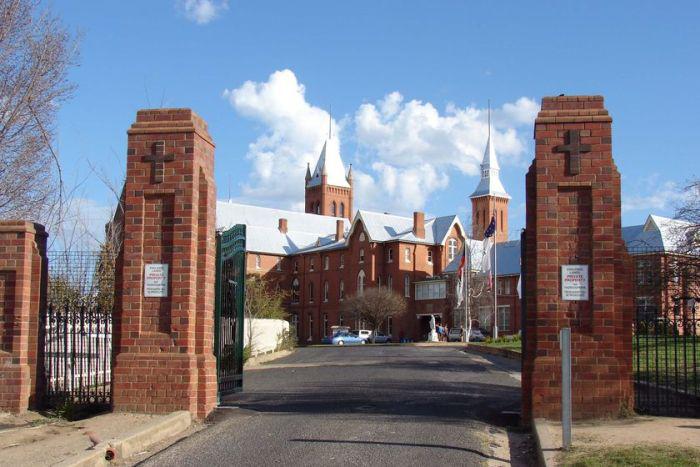|
Reflections from the frontline in the war on Catholic child sex abuse
By Jonathan Flynn
The presentation of victim impact statements is one of the most powerful and revealing parts of a child sexual abuse trial. Each one is different, a unique voice speaking out, usually after decades of painful, secretive silence. But there is a terrible consistency in the effect the abuse had on these people's lives:
These are some of the statements I've heard in sentencing submissions for clerical abusers from my old school, Saint Stanislaus' College. Depression, post-traumatic stress disorder and other mental health problems are described by nearly all the victims. Suicide attempts are also mentioned. Most of the statements I heard were read out by an advocate or legal representative. At the trial of the worst Saint Stanislaus' offender, Brian Spillane, the son of one victim read his father's words. The abuse had destroyed this man's ability to have close relationships. His son had remained at his side throughout. Another of Spillane's victims read his own statement. It was a similar story.
Then he described the pain of having to tell his wife and children about the ordeal he had been through — causing them suffering added to the injury the abuse had brought decades earlier. His voice cracked as he read his statement. People in the court were crying. I heard one person behind me whisper "come on mate" as he struggled to get the words out. Only hearing the victims can bring the reality of abuse homeThere have been so many thousands of words written about the dreadful epidemic of child sexual abuse by religious clergy and lay people. Many times those seeking justice will condemn the church for putting its own interests first, protecting its reputation, downplaying the true horror of the actions it has allowed to take place, covering it up, and always denying, denying, denying. Supporters, advocacy groups and reformers say the focus must be on the victims. They say it over and over again. But it was only when I heard first hand what it was like for those victims, did the truth of those words hit home. I did not set out to visit the frontline of the war on child sexual abuse. It was more like the war expanded so rapidly, I found the frontline was all of a sudden a few metres away from me. I spent all my six years of high school as a boarder at Saint Stanislaus' College. The school is housed in an imposing building with three tall towers, on a hill overlooking the rural city of Bathurst in New South Wales. I arrived in 1975 at age 12, a bookish, devout Catholic boy, and left after year 12 in 1980, an angry, left-wing non-conformist and atheist. My schooling had been influential and meant a lot to me, but in the opposite way that the college had intended. I put those years behind me and never went back. Then around 2008, rumours began emerging that allegations had been made against one of the most trusted and best-loved priests at the school, Brian Spillane. A former student, Tor Nielsen, had launched a campaign to bring Spillane to justice. Tor set up a website, called The Catholic Cover Up, where he accused the priest of molesting boys while carrying out hypnotic religious rituals. By being visible online and in the media, Tor was an easy target for those loyal to the church hierarchy, the school, and the Vincentian order that ran it. He was subject to verbal abuse, vilification and bullying, to a much greater extent than many others in his unenviable position Did my teenage atheism shield me from abuse?Like other victims of child sexual abuse, Tor had been traumatised by the repeated assaults he suffered, but remarkably, he persisted in his campaign. In September 2008, all the TV news bulletins in New South Wales were dominated by raids on multiple homes. The names of those arrested brought childhood memories surging back. It was surreal to see it on television, people and places somehow teleported from my remote past and into the public consciousness. The frontline had come to me. What Tor had done was incredible. He has ultimately been responsible for many offenders being brought to justice. His is a tragic story but one also filled with unbelievable courage. His campaign had many of us delving through our memories of decades past, for recollections of Spillane's criminal behaviour. I didn't have to dig very deeply. I remembered hearing from two boys, who would have been 12 or 13, that Spillane had taken them into his room separately and made them sit on his knee.
Then one morning in 1976 I awoke to the unnerving sensation of a hand stroking my cheek. I opened my eyes to see Spillane standing over my bed. On another occasion, he grabbed me in a bear hug, under the guise of a friendly wrestle. He pressed his genitals hard into my thigh, I could feel them clearly through his trousers and mine. Remembering his previous disturbing behaviour, I pushed him away forcefully. These events began when I was about 12. I did not know what paedophilia was. But it put me on my guard. Two years later, I began to doubt, and eventually loathe Catholic dogma; I became bitter about the way it had been presented to me as fact. With only a modicum of critical thinking, it had dawned on me that the entire religion beggared belief. I formed a clandestine atheist club in Year 9, and urged others to join. I was constantly in trouble, at odds with the clergy. I was threatened with expulsion for influencing other boys in my unbelief. It should have been an ordinary story of a teenage quest for individuality but it is quite possible my teenage atheism helped shield me from sexual abuse. Certainly the childish faith of the victims did them no favours in this regard. Religious passion translated into sexual gratificationSpillane was known as one of the most intensely religious of priests. When he said Mass, or led prayers, he was always completely focused, his eyes screwed tight, his voice loaded with tension, every word imbued with all the theatrical, priestly power he could muster, his hands shaking with intensity as he gripped the host or the chalice. In my very early days at the school, older boys described him as a man you could turn to if you had any problems, or were suffering from homesickness. Decades later, the court revealed how his religious passion was easily translated into sexual gratification. He abused one boy while telling him he was carrying out an exorcism. Another was molested in a group prayer session. The results were devastating. These boys would be denied the chance to find their own path in life the way I had. The accusations against Spillane prompted other victims to come forward. A number of lay teachers, brothers, and other priests at the school were accused; many were convicted. At one stage, when the news emerged of yet more charges being laid, one of my relatives realised that every single one of his form masters had been accused of sexual abuse. For his entire time as a boarder at the school, the priest or brother in charge of his welfare had been a suspected paedophile. Just when the maelstrom of news about our old school was at its peak, I was drawn further into the storm. I received a summons to give evidence in the trial of a priest. The alleged victim thought I might remember details of our time at school which would corroborate his story. But the priest was now old and his lawyers successfully argued he was too frail to survive a trial. The case was dropped. The increasingly horrific stories coming out of the school were changing the way I viewed my formative years. At first I saw it as a vindication of my wayward youth. The clerics who had cast me as the villain had turned out to be far more evil than I had ever imagined. Inadvertently, my unbelief had kept me safe in a far more effective way than those silly stories about a pocket Bible stopping a bullet. But I had a nagging feeling I had missed some truth about this story, so I set myself the goal of attending some of the sentencing hearings. I wanted to glean the facts of the story filtered through the criminal justice system rather than the very flawed system of memory and anecdote. Many of the details I've outlined above are largely drawn from those courtroom experiences. Were we on the 'good side' or the 'bad side'?A few days before Spillane was sentenced, the royal commission into child sexual abuse released data revealing the extent of Catholic offences. The Vincentians were there, rated as the fifth worst priestly order with 8 per cent of its members between 1950 and 2009 being accused of sexual offences. Can you imagine your boss telling you that 8 per cent of your colleagues had been accused of child rape? It was a shocking figure, but it paled into insignificance compared to the worst orders. Top of that list was the Brothers of Saint John of God, with more than 40 per cent of the order's members between the period 1950 and 2009 alleged to have been perpetrators. There were 4,444 victims of Catholic abuse in total. Every one of them has a story similar to the ones I had heard first-hand in court. And as I listened to that one survivor who had the incredible courage to read his statement in person, I realised what I had been missing. My own motivation, to seek vindication for my atheism, had been misplaced. It suddenly seemed petty to relive the thrills of teenage rebellion, to gloat about what I had escaped, when those who had not were in such pain. What was worthwhile, was to support the victims. In the final hearing I attended, I struck up a conversation with the mother of one them. As we chose our seats in the gallery, she asked, "Are we on the good side or the bad side?" She meant, were we seated near people who were there to support or sympathise with the defendant? It turned out we were on "the good side". But she told me how horrible it had been in the early days of the case, to show up in court with her son and one legal representative, to look across to the other side of the court to see what looked like 50 "loyalists" — ex-students, friends, other Vincentians. One of them even raised a clenched fist, to express solidarity with a man who would, eight long years later, be revealed to be a sexual predator of the worst kind. That was "the bad side". The disturbing toll of mental illness and trauma which has ruined the lives of child sexual abuse victims needs to be addressed. They deserve justice and understanding first of all. Resources to help them survive their ordeal, and financial compensation are also called for. Other considerations can follow. If they are not compatible with seeking justice for the victims first, then they are not worth considering at all. That is how the "good side" needs to proceed. After the last hearing I attended, I made a point of shaking the hand of the man who had read his own victim impact statement, and thanked him for his courage. For all the totally credible testimony, that the victims had lost the ability to trust, I believe that this man accepted my good intentions. Even though he owes me none, he did, somehow, find some reserves of trust in our brief encounter. And for all the horrors that I had heard, that far outweighed them all.
|
.
Any original material on these pages is copyright © BishopAccountability.org 2004. Reproduce freely with attribution.



